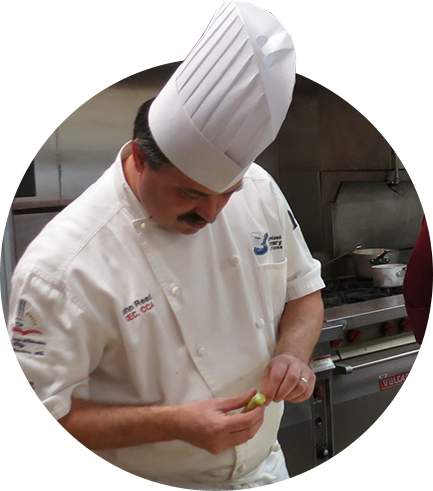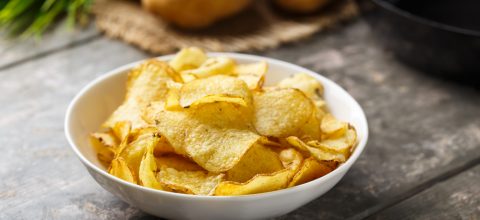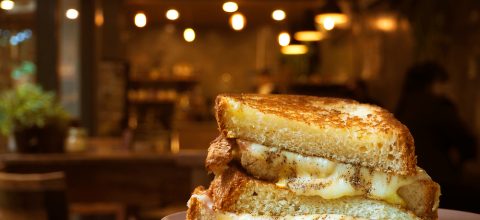For many classically trained chefs like me, we are always drawn back to the classical cuisine as defined by Le Guide Culinarie. If you are not a student of Escoffier’s work, you automatically think of French Haute Cuisine and the Grand Hotel. As you read and study about his life, you come to realize that his work is also influenced by his time working in London and the other Ritz Hotel-not the one in Paris.
There are many references to English terms that are not generally recognized by the average reader of his work on this side of the pond. Yes, there are also two translations of his original 1903 text; the first was an English text in 1921, then the American version in 1979. There are some differences in terminology and descriptions-aubergine versus eggplant, then marrow (the vegetable, not the yumminess trapped inside a femur bone) as examples.
You see it even more profoundly in the fact that he dedicated two sections of his chapter on sauces to both hot and cold English sauces. There are also plenty of references to “a la Anglaise” preparations. So, one can say that English preparations are just as much a part of “classical” cuisine as are the consommés, pithiviers and pate glaces from the French.
There are several of these sauces that are ubiquitous to modern menus and even have more credence as “classical” recipes. Take, for instance, brown gravy (#168), port wine sauce (#187), horseradish sauce (#219) and cumberland sauce (#217). These sauces are just as relevant today as sauce Mornay (#131), Robert (#74) or Hollandaise (#119). Cranberry sauce (#172) is recommended for roast turkey. How utilitarian is that nowadays?
There are even many references to English pies and puddings that were presented in the text for the patrons of the hotels at the time who wanted a taste of their culture. Escoffier’s seasonality, time and place mentality is very true today. The biggest hurdle we have with classical cuisine today is not the philosophy of cooking, but the steps involved to produce and the presentation that was defined by the type of service. Where do you find Russian service still being done anymore?
If he were writing his books today, would his version of curry sauce (#111) include thyme, bay leaves and bouillon? He may have used a tikka masala or a korma prepared as it would be done at the Ritz Carlton in Bangalore. Instead of running hotels in London and Paris, his team today would have to think globally and document modern recipes for the cuisines and cultures of the Ritz Brand on a multi-national scale. To me, it sounds like a heck of a culinary challenge. Le Guide Culinare Moderne. It brings up the question-what recipes do you think would need to be in there? We must understand the past and preserve it, but we need to start creating and documenting new classic cuisine for the next generation.










